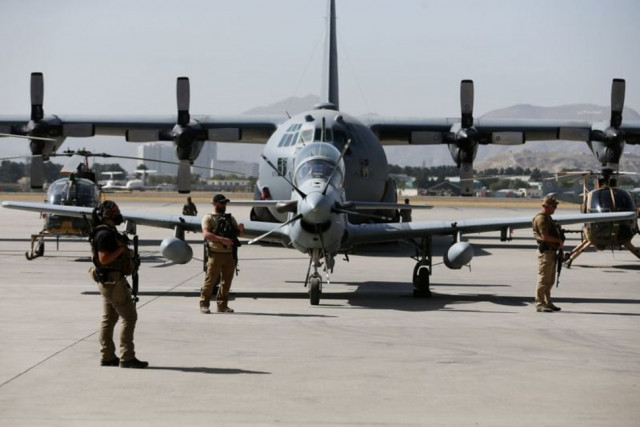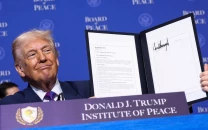Australia to close embassy in Afghanistan over security fears
Blaxland expressed fears that Afghans who work with the Australian government may now be unable to leave

Australia on Tuesday abruptly announced it will shutter its embassy in Afghanistan this week, expressing fears over the "increasingly uncertain security environment" in Kabul as foreign troops withdraw.
Australian Prime Minister Scott Morrison said the facility would close as an "interim measure" on May 28 -- in just three days -- "in light of the imminent international military withdrawal from Afghanistan".
The United States and allied forces are in the final stages of withdrawing their troops from Afghanistan, ending America's longest-ever war but heralding an uncertain future for a nation in the tightening grip of Taliban militants.
The elected government in Kabul and the Afghan security services remain fragile despite two decades of foreign capacity building, and their success is far from clear without continued US military support.
Western diplomats and military officials have been scrambling to work out how to provide security for their future civilian presence in Afghanistan amid fears of a Taliban comeback.
"The only incentive for foreign embassies to remain is the humanitarian work that they are involved in, but if their personnel are endangered then there is no point in remaining here," a foreign defence official based in Kabul told AFP.
"Several other embassies will follow Australia in the coming weeks or months."
In recent weeks, violence in the country has soared and Afghan forces have clashed with Taliban fighters not far to the east and west of Kabul.
US President Joe Biden said all US troops will leave by September 11, the 20th anniversary of the Al-Qaeda attacks that sparked the US-led invasion of Afghanistan that toppled the Taliban.
- 'A sad indictment' -
Around 80 Australian troops are also leaving Afghanistan, ending a mission that cost the country billions of dollars and saw tens of thousands of military personnel deployed.
Without that small Australian contingent and the larger US force as back-up, Morrison said there was an "increasingly uncertain security environment".
"The government has been advised that security arrangements could not be provided to support our ongoing diplomatic presence," he said in a statement.
It was not clear whether there was a specific threat made against the embassy, which is located in the heavily fortified Green Zone, not far from the US mission.
Last month, the US embassy also ordered its non-essential staff to leave Afghanistan as a temporary measure, though the mission will continue to operate.
Key among the concerns of foreign embassies is making sure Kabul airport -- the country's main gateway to the outside world and the exit route for Western diplomats and humanitarian workers if security breaks down -- can function securely.
Australian officials are still expected to visit Afghanistan from overseas posts, with Morrison saying it will be a "temporary measure" and the country remains "committed to the bilateral relationship".
The sudden closure surprised some experts in Australia.
"I can understand on one level why they would want to close, but I think it's a sad indictment that we should walk away like that after 20 years of investment, blood, sweat and tears," said Professor of International Security at the Australian National University John Blaxland.
"It is not set in stone that this is going to be a Taliban roll-up in the next few weeks. The Afghan National Security Forces still exist and they are still quite robust."
"This is not Saigon 1975," he added, a reference to the dramatic helicopter evacuation from the roof of the US embassy in South Vietnam as the Viet Cong and regular communist military forces seized the city.
Blaxland expressed fears that Afghans who work with the Australian government may now be unable to leave.
"That is something that, if we do not address, the shame of that will linger for years," he said.



















COMMENTS
Comments are moderated and generally will be posted if they are on-topic and not abusive.
For more information, please see our Comments FAQ